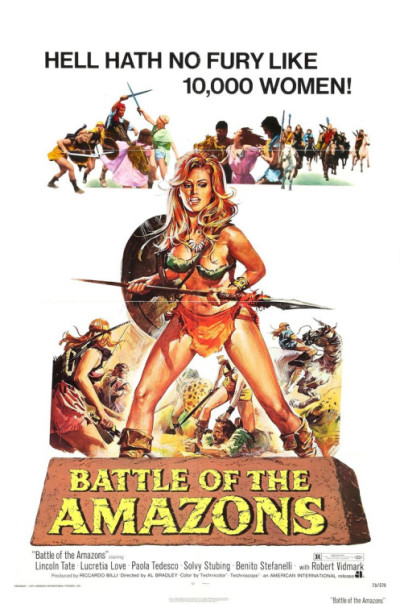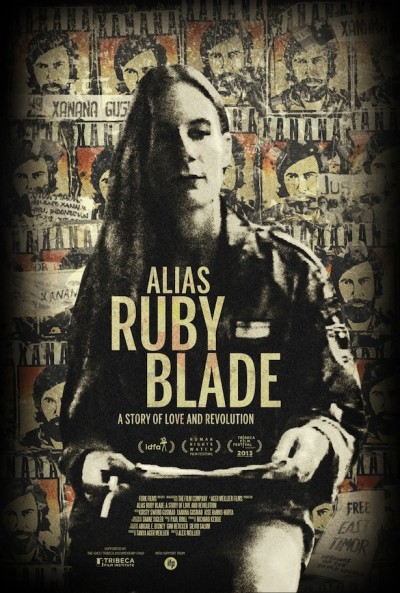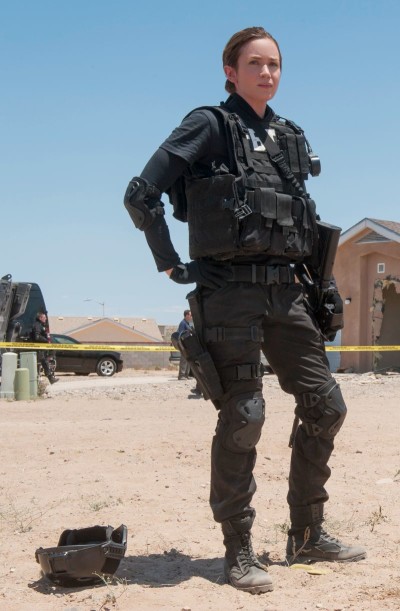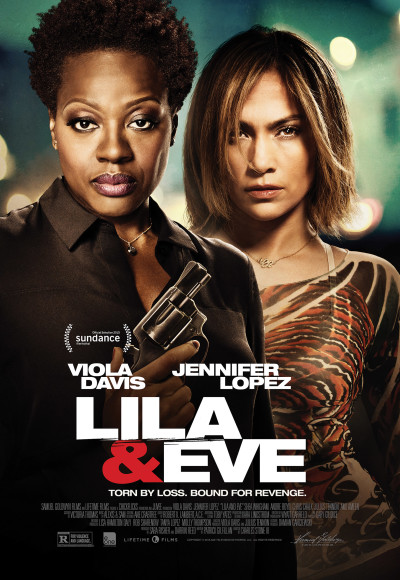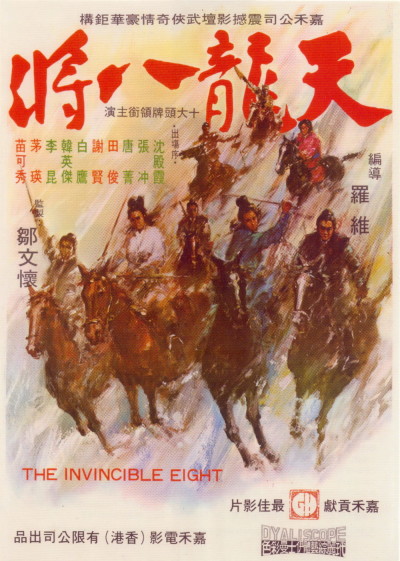 [Of necessity, this piece includes spoilers for Star Wars: The Force Awakens. Not that there’s anything I’d call a surprise or twist, but if you are one of the four people on the planet who have not yet seen it, and want to be completely oblivious, come back later!]
[Of necessity, this piece includes spoilers for Star Wars: The Force Awakens. Not that there’s anything I’d call a surprise or twist, but if you are one of the four people on the planet who have not yet seen it, and want to be completely oblivious, come back later!]
2015 has to be called the year of the “stealth action heroine,” with a number of big-budget movies turning up on this site, which you would not have expected going in. Firstly, there was Mad Max: Fury Road, in which a one-armed Charlize Theron zipped around a post-apocalypse wasteland, with Tom Hardy as her occasionally useful sidekick. Then, there was Mission Impossible: Rogue Nation, where Rebecca Ferguson has repeatedly to rescue some Tom Cruise bloke from peril. And now, the Star Wars franchise, hardly a bastion of gender equality in the preceding six entries, puts Daisy Ridley’s Rey front and centre. While there may be ongoing issues with Rey’s disappointing scarcity in the toy aisles, it appears she will serve the same purpose as Luke Skywalker in the original trilogy. If this trio of movies has anything like the same cultural impact, this will vault Rey to or near the very top of genre heroines, in terms of her influence.
I’m not what you’d call a Star Wars fan. While I was 11 when A New Hope originally arrived in the UK, at the time, I lived in a small town in the North of Scotland. With no local cinema, and our family not having a car, movie visits were very few and far between. I probably didn’t seen the film for at least five years, until it showed up on television, and it was just never part of my formative years. Doctor Who probably was a bigger influence, and Star Wars never registered significantly on my psyche. The second trilogy came out: again, I didn’t bother with The Phantom Menace for years, and when I did, realized why. I still have not seen, to this day, Revenge of the Sith. But I was still interested in The Force Awakens, mostly as a result of J.J. Abrams in the director’s chair, having loved what he did with the Star Trek franchise. If anyone could invigorate a series on life-support, he could – though being backed by the massive marketing machine of Disney clearly didn’t hurt its chances. The Force Awakens was everywhere.
 So, as with Fury Road and MI:RN, I’d have gone to see it anyway, and wasn’t expecting anything much in the way of any action heroines. The original trilogy had given us the somewhat schizophrenic character of Princess Leia, who swung from “Help me, Obi-Wan Kenobi. You’re my only hope,” to wielding weapons with the best of them, then back to “slave Leia”. At least Lucas made an effort there. Episodes I-III? Not so much. They offered Padmé Amidala, who had some potential by the end of The Phantom Menace, only to turn into little more than Anakin Skywalker’s brood mare. But as word seeped out about Rey and her prominence, I can’t say I was too surprised. Abrams, remember, created Alias, whose lead Sydney Bristow represents (at least, in the first couple of series) one of the high-water marks of the televisual action heroine in the 21st century. And, hey, he had cast Gwendoline Christie, so my wife and I were, at the very least, guaranteed to be nudging each other and squealing, “Brienne!”
So, as with Fury Road and MI:RN, I’d have gone to see it anyway, and wasn’t expecting anything much in the way of any action heroines. The original trilogy had given us the somewhat schizophrenic character of Princess Leia, who swung from “Help me, Obi-Wan Kenobi. You’re my only hope,” to wielding weapons with the best of them, then back to “slave Leia”. At least Lucas made an effort there. Episodes I-III? Not so much. They offered Padmé Amidala, who had some potential by the end of The Phantom Menace, only to turn into little more than Anakin Skywalker’s brood mare. But as word seeped out about Rey and her prominence, I can’t say I was too surprised. Abrams, remember, created Alias, whose lead Sydney Bristow represents (at least, in the first couple of series) one of the high-water marks of the televisual action heroine in the 21st century. And, hey, he had cast Gwendoline Christie, so my wife and I were, at the very least, guaranteed to be nudging each other and squealing, “Brienne!”
Enough of the preamble. What of the film? I think what surprised me was how closely it mirrored A New Hope, to the extent it seemed far more of a reboot than a sequel. Robot with vital information to the rebels, found by an orphan on a desert planet? Said orphan turns out to have hidden potential, which only blossoms after encountering the dark side of the force? A planet-killing weapon, that can only be destroyed by a near-suicidal attack after a fatal flaw in its engineering is revealed? Hell, Awakens even had its own version of the Mos Eisley cantina scene, with an exotic array of alien races all getting along in a shady bar. I’d have like to have seen rather more originality; if A New Hope clearly owed a debt to earlier works, not least Flash Gordon, it had elements which were its own. I’m hard pushed to think of much in Awakens, that I hadn’t seen before.
The main new aspect is Finn (John Boyega), a reformed stormtrooper who switches sides, helping Resistance pilot Poe Dameron escape from First Order custody, and joining the resistance. After six films which portrayed them as literally faceless minions, this was an interesting idea, though thereafter, they’re back to being cannon fodder, blown away not least by Finn. I’ve a feeling there’s a reveal in the future. He, like Rey, also doesn’t know his parents and may have his own pipeline to the Force, considering he’s capable of giving Kylo Ren a better run than you’d expect, for someone who had never touched a light-saber before. Mind you, his ethnicity might make that tricky, considering about the only significant character of color in the previous six movies – unless you count Jar Jar Binks, and I certainly don’t – was Lando Calrissian. Finn’s surprising talent does somewhat defuse criticism of Rey’s apparently miraculous superpowers, including languages, spaceship piloting and Jedi mind tricks, as well as light saberage, all without the benefit of even a Skype session with Yoda.
But I did like the understated nature of Rey’s nature. She’s confident in her own abilities, more so than most, complaining to Finn, “I know how to run without you holding my hand!” It’s Han Solo who proves a quicker and better judge of her character, as shown in this exchange, after he hands her a blaster:
“You might need this.”
“I think I can handle myself!“
“That’s why I’m giving it to you…”
 It’s a simple and effective way to establish her legitimacy – almost a passing of the torch, having it acknowledged by the central character here carried forward from Episodes I-III, and who was likely its most-beloved hero. We also should be aware that Rey is, very clearly, a work in progress. Yes, her character flaws so far have certainly been downplayed, to the point that she basically doesn’t have any to speak of. Yet how many flaws could you find in Luke Skywalker by the end of A New Hope? I’m fairly sure Disney are not sitting around and wondering in what direction the next two installments should go; there’s likely a very highly-guarded vault, in which story treatments for episodes VIII and IX are already present. [Probably next to Walt’s cryogenically-frozen head] There’s story arc to come, I trust, and all the flaws and crises you could want. Judging Rey’s character at this point would be as ill-advised as defining Frodo purely on his actions in The Fellowship of the Ring.
It’s a simple and effective way to establish her legitimacy – almost a passing of the torch, having it acknowledged by the central character here carried forward from Episodes I-III, and who was likely its most-beloved hero. We also should be aware that Rey is, very clearly, a work in progress. Yes, her character flaws so far have certainly been downplayed, to the point that she basically doesn’t have any to speak of. Yet how many flaws could you find in Luke Skywalker by the end of A New Hope? I’m fairly sure Disney are not sitting around and wondering in what direction the next two installments should go; there’s likely a very highly-guarded vault, in which story treatments for episodes VIII and IX are already present. [Probably next to Walt’s cryogenically-frozen head] There’s story arc to come, I trust, and all the flaws and crises you could want. Judging Rey’s character at this point would be as ill-advised as defining Frodo purely on his actions in The Fellowship of the Ring.
As an aside, something The Force Awakens does, is highlight the idiocy of the Bechdel Test, a “metric” [and I’m using quotes advisedly] which is used in some quarters to determine a film’s feminist street-cred. It asks, in short, whether a movie has two women who talk to each other, about something other than a man. It’s as simplistic as it sounds, but hey, that’s Feminism [capital F, again, used advisedly] for you. Despite some claims to the contrary, The Force Awakens does not pass the Bechdel Test. The only actual conversation between two potentially female characters is Rey’s conversation with Maz Kanata – an alien, so who can knows about their gender? – and, in any case, has Luke Skywalker as its main topic. Yet, this is undeniably one of the most feminist (small f) science-fiction films in recent years. It just does not care about the Bechdel Test, so can be filed alongside Run Lola Run and Gravity. Sucker Punch, meanwhile, passes the test. Sorry, what exactly were we testing for, again?
 Getting back on track, Ridley does a good job in a role that, obviously, comes with a lot of baggage, and is fraught with risk – just ask Hayden Christensen. She does look, perhaps, a little too “shiny” for someone living on the edge of society, without parental supervision and as a scavenger – such perfect teeth! Yet there’s something about her, both in look and feisty attitude, which reminded me of Princess Nausicaä, the heroine of Hayao Miyazaki’s animated feature, Nausicaä of the Valley of the Wind. She’s brilliant at sizing up a situation, assessing the need for action, and it extremely decisive in taking it, neither waiting around for permission, nor begging forgiveness either – again, this is based on a confidence in her own abilities, which appears an increasingly more accurate assessment, the longer the film goes on. Let’s face it, if she can talk James Bond into letting her go – for it was 007 actor Daniel Craig who played the mind-tricked stormtrooper in a cameo – the sky’s the limit for Ray’s talents.
Getting back on track, Ridley does a good job in a role that, obviously, comes with a lot of baggage, and is fraught with risk – just ask Hayden Christensen. She does look, perhaps, a little too “shiny” for someone living on the edge of society, without parental supervision and as a scavenger – such perfect teeth! Yet there’s something about her, both in look and feisty attitude, which reminded me of Princess Nausicaä, the heroine of Hayao Miyazaki’s animated feature, Nausicaä of the Valley of the Wind. She’s brilliant at sizing up a situation, assessing the need for action, and it extremely decisive in taking it, neither waiting around for permission, nor begging forgiveness either – again, this is based on a confidence in her own abilities, which appears an increasingly more accurate assessment, the longer the film goes on. Let’s face it, if she can talk James Bond into letting her go – for it was 007 actor Daniel Craig who played the mind-tricked stormtrooper in a cameo – the sky’s the limit for Ray’s talents.
This hasn’t been the most formal of reviews, but if I was grading The Force Awakens on our usual scale, I’d probably give it 3.5 stars. As mentioned, I found it too derivative for its own good: if understandable, after the mis-steps which were episodes IV-VI, it needed to break away from the past, in the way Abrams’ reboot of Star Trek did with much greater success. It’s perhaps significant that the film’s most genuine and emotional moments came courtesy, not of Rey or Finn, but Han and Leia, and the series won’t have that relationship to lean on, going forward. However, the final scene hinted that Luke + Rey could be the focus for those future installments, and Internet speculation has been rife as to whether there may turn out to be more to this than a simple master/student dynamic. There’s certainly potential in Rey as a heroine of suitably royal proportions; however, anyone who remembers The Matrix will be aware that even a great first film does not guarantee a good trilogy. Work remains to be done, Mr. Abrams.
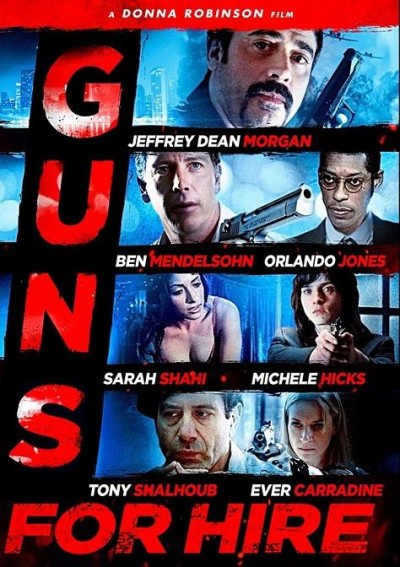 The first spectacular misfire of 2016, I was hoping for much more, than a story that could only be claimed to make any sense if it was entirely the ravings of a mentally-deranged idiot. Beatle (Hicks) is a tow-truck driver/assassin – yes, that’s what it says on her business cards – who rescues Athena (Carradine) from her abusive ex-boyfriend, Kyle (Mendelsohn). In revenge, he sets deranged psychopath Bruce (Morgan) on their trail, and he is prepared to stop at nothing to bring them back to his boss. Meanwhile, Athena hires Beatle to kill her, but they have to hang out until the change in Athena’s life-insurance policy, making Beatle the beneficiary, is officially completed. Except, is Beatle actually a killer at all? For her therapist seems convinced otherwise. The entire saga unfolds in flashback, as Beatle is being interrogated by a detective, who has found the videotape of Beatle’s infomercial for her hitwoman business. Certainly sounds like an unusual set-up, and potentially interesting, right?
The first spectacular misfire of 2016, I was hoping for much more, than a story that could only be claimed to make any sense if it was entirely the ravings of a mentally-deranged idiot. Beatle (Hicks) is a tow-truck driver/assassin – yes, that’s what it says on her business cards – who rescues Athena (Carradine) from her abusive ex-boyfriend, Kyle (Mendelsohn). In revenge, he sets deranged psychopath Bruce (Morgan) on their trail, and he is prepared to stop at nothing to bring them back to his boss. Meanwhile, Athena hires Beatle to kill her, but they have to hang out until the change in Athena’s life-insurance policy, making Beatle the beneficiary, is officially completed. Except, is Beatle actually a killer at all? For her therapist seems convinced otherwise. The entire saga unfolds in flashback, as Beatle is being interrogated by a detective, who has found the videotape of Beatle’s infomercial for her hitwoman business. Certainly sounds like an unusual set-up, and potentially interesting, right?





